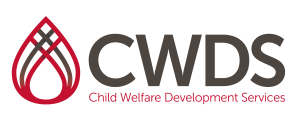CWDS Curriculum
Critical Thinking Skills for Supervisors
Level: Advanced Supervision
Credits: 6
Intended Audience: Child welfare supervisors
Description of Course: The field of child welfare and social services requires staff to use critical thinking skills to determine how to best provide services to clients,
considering needs, resources, strengths, external timeframes & mandates, and cultural identity. In order for staff to develop these skills, supervisors need to not only have
these same type of skills, but must also understand how to professional develop staff in creating, refining and maintaining critical thinking skills.
This course provides a foundation for the concepts involved in critical thinking, including the importance of using critical thinking skills in child welfare. Participants begin with an organizational assessment of how critical assessment and thinking is supported within the organization at the micro- and the macro- levels. Participants review some foundational concepts from the core supervisor series (situational leadership, templates/bias) to elevate the concepts to the understanding of how to teach these to staff. A reflective model of thinking is dissected and practiced, followed by reviewing and practicing models of problem-solving and decision-making. Throughout the course, participants are not only learning the concepts for themselves in their role as a supervisor, but also developing strategies for teaching these concepts to their respective staff.
Intended Objectives:
- Self-assess critical thinking skills and create a plan for further development
- Understand and apply the reflective practice model as a foundation for critical thinking
- List examples of best practice skills for staff and determine ways to measure, document and develop competence in these skills
- Understand and practice situational leadership as a model to determine the most appropriate style of supervisor intervention
- Review decision-making and problem-solving processes used by staff
- Value the importance of asking staff how they determined an action or decision, and practice using this process to determine a staff’s decision-making process in a skills practice scenario
Topics Include:
- Situational Leadership
- Model for Reflection
- Self-Assessments
- Cultural Identity
- Coaching
Supervision and Management



